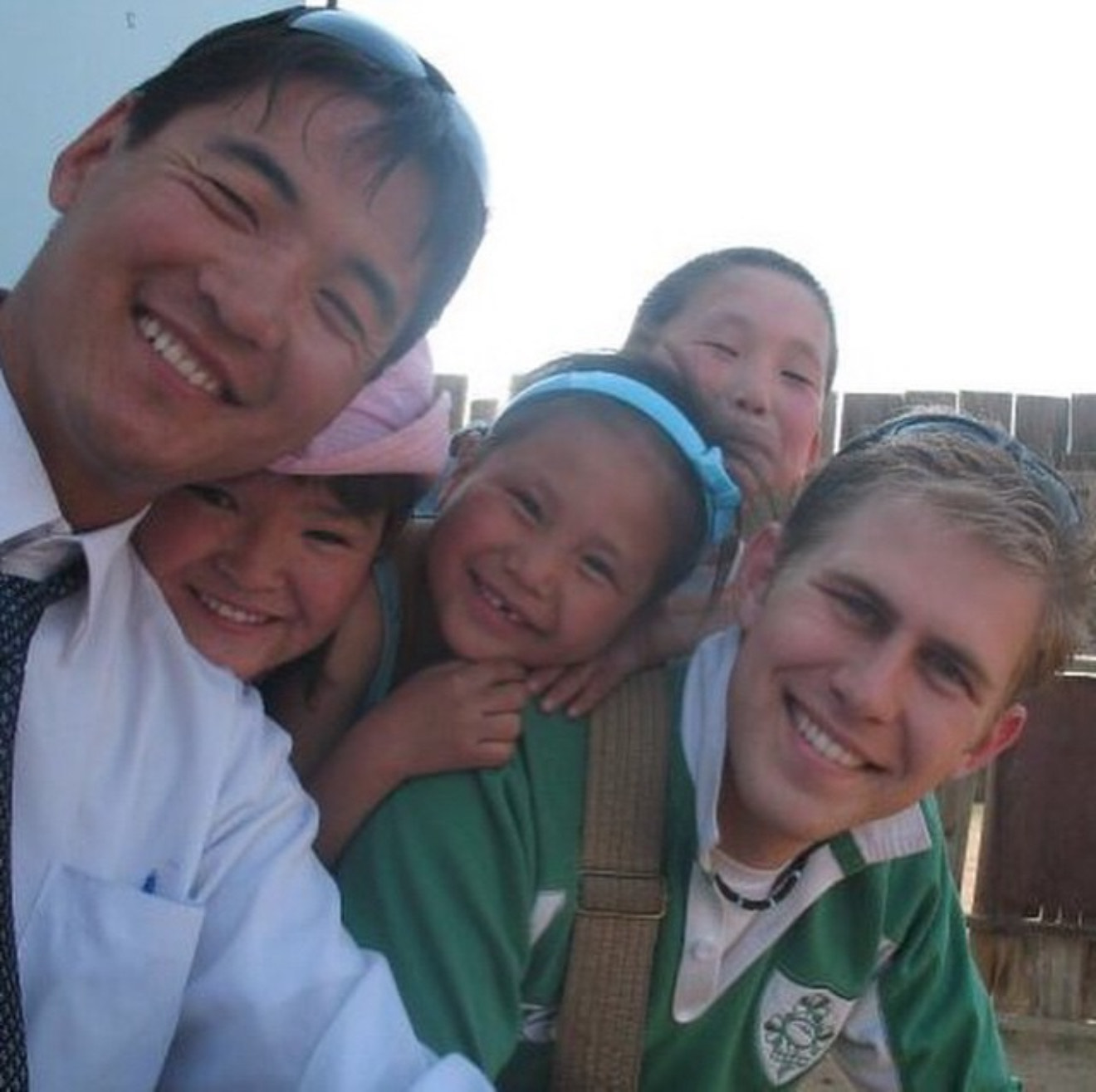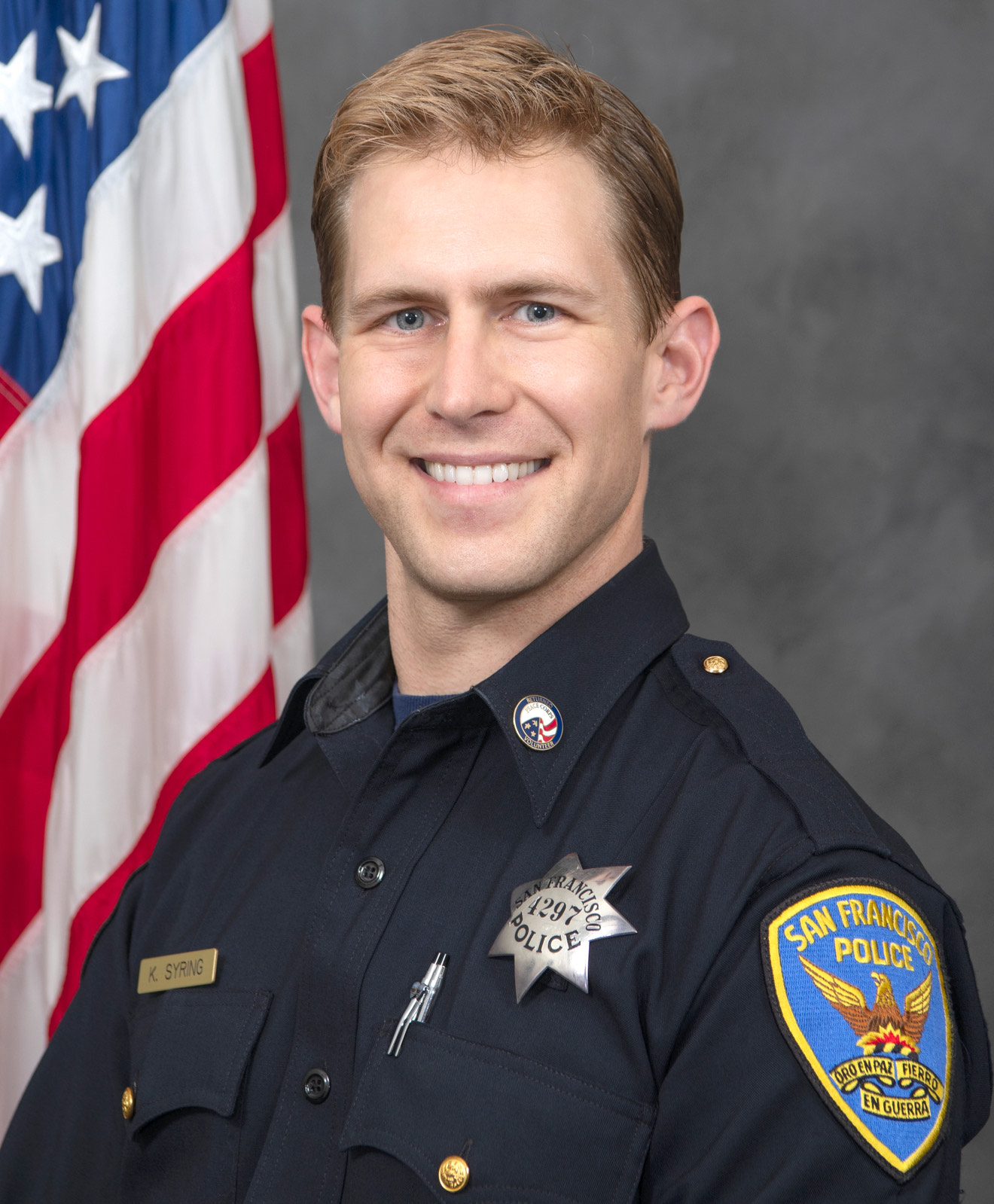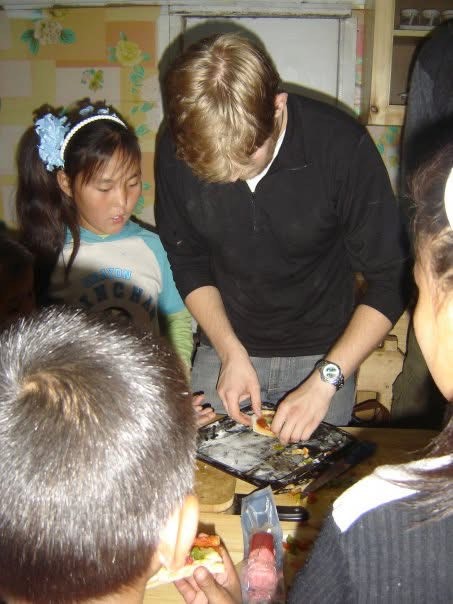By Ken Syring
When I landed in Mongolia as a trainee Peace Corps Volunteer in 2006, I thought I was there to teach English and possibly learn a few things about a new country and the world. Two years later, I returned to America fundamentally changed—not just in the ways the recruitment brochures promised, but in ways neuroscience is only now beginning to understand. My time in Choibalsan, the 20,000-strong fourth-largest city in sparsely populated Mongolia, didn’t just give me language skills or cross-cultural competence. It rewired my brain to be more resistant to extremism, disinformation, and ultimately authoritarianism.

This isn’t metaphorical. Peer-reviewed research shows that immersive national and community service experiences such as the Peace Corps and AmeriCorps measurably reduce psychological traits that make people susceptible to authoritarian leaders and conspiracy theories. At a moment when American democracy faces threats from within — when only 19 percent of Gen Z trusts the federal government, when loneliness drives young men into extremist online communities, when disinformation spreads faster than fact — the Trump administration is now on the verge of gutting the very programs that could save us.
The cuts to Peace Corps and AmeriCorps aren’t just bureaucratic trimming. They represent up to a 50 percent reduction in headquarters staff and the elimination of nearly a quarter of leadership positions. There are serious attempts to dissolve AmeriCorps entirely. We’re dismantling our democratic immune system at the exact moment a virus is spreading.
 I’ve spent the years since Mongolia trying to understand what happened to me there—first in the human rights nonprofit space, then as a San Francisco police officer, and most recently as a federal official at the Department of Homeland Security. Since learning that military members, law enforcement officers, and veterans of both participated in the January 6, 2021, attack on the U.S. Capitol, as well as joining known paramilitary militia groups, I’ve also been a researcher studying disinformation and extremism. What I’ve found should reshape how we think about national service: It’s not just a nice-to-have program for idealistic youth. It’s an urgent matter of national security.
I’ve spent the years since Mongolia trying to understand what happened to me there—first in the human rights nonprofit space, then as a San Francisco police officer, and most recently as a federal official at the Department of Homeland Security. Since learning that military members, law enforcement officers, and veterans of both participated in the January 6, 2021, attack on the U.S. Capitol, as well as joining known paramilitary militia groups, I’ve also been a researcher studying disinformation and extremism. What I’ve found should reshape how we think about national service: It’s not just a nice-to-have program for idealistic youth. It’s an urgent matter of national security.
The Psychology of Democratic Collapse
To understand why service matters, we need to understand what can make democracies vulnerable. Social psychologists have identified two key personality traits that can predict support for authoritarian politics: Right-Wing Authoritarianism (RWA) and Social Dominance Orientation (SDO).
People high in RWA crave order and certainty. They want strong leaders who will enforce traditional values and punish those who deviate. People high in SDO see the world hierarchically—some groups deserve to be on top, while others belong below. Both traits correlate strongly with believing and spreading disinformation, supporting antidemocratic and authoritarian policies, and even endorsing political violence.
Here’s where it gets interesting: These aren’t fixed traits. They can be changed. And one of the most effective interventions? Extended service-learning experiences and opportunities for people to work as equals with those different from themselves.
A study of 140 undergraduates found that those who participated in service-learning showed a 10 percent reduction in SDO scores, while a control group showed no change. Ten percent might sound modest, but in psychological terms, it’s transformative. It’s the difference between someone who shares conspiracy theories and someone who questions them. Between someone who sees democracy as broken beyond repair and someone who believes in reform.
 The mechanism is elegant: When you spend months or years sharing your life with people very different from yourself–when a rural Mongolian family’s and coworkers’ hospitality keeps you warm through -40 degree winters, when your project’s success depends on partnering with local leaders as equals, when you’re the one who doesn’t speak the language fluently—your brain’s us-versus-them circuits get rewired. Empathy increases. Fear of the “other” decreases. Trust in cooperative institutions grows.
The mechanism is elegant: When you spend months or years sharing your life with people very different from yourself–when a rural Mongolian family’s and coworkers’ hospitality keeps you warm through -40 degree winters, when your project’s success depends on partnering with local leaders as equals, when you’re the one who doesn’t speak the language fluently—your brain’s us-versus-them circuits get rewired. Empathy increases. Fear of the “other” decreases. Trust in cooperative institutions grows.
The Loneliness Pipeline to Extremism
This psychological protection has never been more crucial. We’re facing a loneliness epidemic that makes young Americans uniquely vulnerable to radicalization. Twenty-five percent of young men report feeling lonely frequently, ten percent above the Organization for Economic Co-operation and Development (OECD) average. Forty-two percent of college students feel more isolated than previous generations.
Loneliness isn’t just personally painful; it’s politically dangerous. In my time studying extremist recruitment, I’ve seen the pattern repeatedly: Social isolation leads people to online grievance communities ranging from white supremacists to anti-government militias, to incel communities, and techno-fascist message boards, where they find belonging through shared anger. Their worldview reorganizes around conspiracy theories about immigrants, LGBTQ+ individuals, ethnic minorities, and women that explain their pain. Eventually, they become willing to support, or participate in, violent revenge against the system they blame.
The January 6 insurrection wasn’t an anomaly. It was the predictable result of millions of lonely, angry people finding community online in conspiracy theories. My research on law enforcement participation in extremist groups found that officers who joined militias like the Oath Keepers were often seeking the belonging they’d lost as their profession became politically polarized.
National service breaks this pipeline. It provides a real community based on shared purpose rather than shared grievance. It offers meaning through building rather than tearing down. Most importantly, it inoculates against the simplistic us-versus-them thinking that authoritarians exploit.
What We Stand to Lose
The costs of cutting these programs extend far beyond individual transformation. Over 65 former Peace Corps volunteers have served as U.S. ambassadors, with hundreds more serving as diplomats, bringing irreplaceable cultural understanding to diplomacy. When global health threats emerge, volunteers often provide the first warning — they’re embedded in communities where pandemics can begin and are locally trusted enough to hear what’s happening even before official channels know.
But perhaps most critically, we lose what I call “democratic resilience training.” While more research is badly needed, returned volunteers’ behavior is deeply consistent with those who have higher levels of empathy and lower scores of SDO and RWA. They’re less likely to fall for disinformation, less susceptible to demagogues, and more committed to democratic norms; in a society where authoritarianism is going viral, volunteers are like antibodies in the social bloodstream.
The bitter irony is that it’s clear the current administration is considering these cuts precisely because they work. Programs that foster globally minded, institutionally trusting citizens, pose a threat to those who profit from division and distrust. It’s no coincidence that the loudest voices against national service come from those who spread conspiracy theories about global elites and deep states. They understand, perhaps better than we do, that every Peace Corps or AmeriCorps volunteer who comes home is one less person they can radicalize.
A New Endeavor: From New Deal to Democratic Renewal
So, what do we do? First, we must recognize national service for what it is: not charity work for privileged kids, but a strategic investment in democratic resilience.
Participating in a common mission of national and community service confers both dignity on the individual and resilience on the republic. That discovery animates the proposal I call The New Endeavor—a nationwide expansion of civilian service premised on a simple formula: Serve → Belong → Flourish.
Franklin Roosevelt’s New Deal rescued an economy; John F. Kennedy’s New Frontier summoned a generation to explore. Today, democracy itself is under strain—from loneliness that curdles into grievance, from disinformation that metastasizes into violence, and from leaders who prosper by pitting “real Americans” against imagined foes. The New Endeavor meets this moment by treating civic participation as security infrastructure. Its promise is not merely that service fixes problems; it is that participation dignifies the participant and, in so doing, inoculates society against extremist and authoritarian temptations.
This means not just protecting programs like AmeriCorps—our existing domestic national service infrastructure—but building resilience at every level of government. While federal agencies already grant “noncompetitive eligibility” hiring preferences to Peace Corps and AmeriCorps alumni, state and local governments largely don’t. This needs to change. With massive federal workforce reductions underway, states and cities should seize this opportunity to recruit service alumni, especially for first responder agencies such as police and fire departments, where the RWA and SDO reduction from service experience could literally save lives.
When federal support falters, the states must step up. They should hire laid-off federal national service personnel to preserve institutional knowledge. State-level service programs should form interstate and inter-locality service compacts, sharing resources, best practices, and opportunities for volunteers to operate in communities away from home. Think of it as a distributed backup system for democracy—if Washington won’t maintain our civic infrastructure, then Austin, Albany, and Anchorage must.
The formula works: first, people serve alongside those different from themselves. In doing so, they belong to something larger than themselves. And through that process, they flourish into citizens resistant to democracy’s enemies. Whether through Peace Corps abroad or AmeriCorps at home, the transformation is the same—lowered authoritarianism, increased empathy, and ultimately, stronger democratic commitment.
This New Endeavor isn’t about creating new programs. It’s about recognizing that in an age of algorithmic isolation and digital disinformation, we need analog antidotes. Real people, in real communities, doing real work together. The dignity that comes from contributing, from belonging to a shared project, from building a community and partnerships, this is the national vaccine against the virus of authoritarianism.
Most importantly, we need to reframe the conversation. This isn’t about budget line items or government efficiency. It’s about whether American democracy survives the 21st century. Every volunteer we don’t send, every program we don’t fund, is another young person left vulnerable to the siren calls of anger, hate, and fascism. The New Endeavor treats national service as what it truly is: democracy’s beating heart, which must be protected at the federal level when possible, and preserved through state and local innovation when necessary.
The Hard Work of Freedom
Service didn’t just change my career trajectory; it changed my mental pathways in ways that made me less susceptible to the authoritarian currents now threatening to drown our democracy.
We’re at a crossroads. Down one path lies the continued dismantling of programs that create democratically resilient citizens, leaving a generation isolated, distrustful, and vulnerable to extremism. Down the other lies a recognition that national service isn’t a luxury we can cut but a necessity we must expand.
The choice seems obvious. But then again, I’ve had my worldview shaped by service. For the millions of young Americans who haven’t and remain trapped in cycles of loneliness and conspiracy thinking, the authoritarian option might look appealing. That’s precisely why we can’t afford to lose these programs now.
National service is the hard work that protects democracy; one person, one community, at a time. In an era when our democracy faces its gravest threat, national service isn’t just a good idea. It’s critical to national security.
The question isn’t whether we can afford to maintain these programs. It’s whether we can afford not to.
Ken Syring is a Returned Peace Corps Volunteer (Mongolia 2006-2008), former Deputy Chief of Staff at U.S. Customs and Border Protection, and presenter of “Repairing Broken Windows: A Framework to Counter Disinformation and Extremism in U.S. Law Enforcement” at the Cambridge Disinformation Summit.



